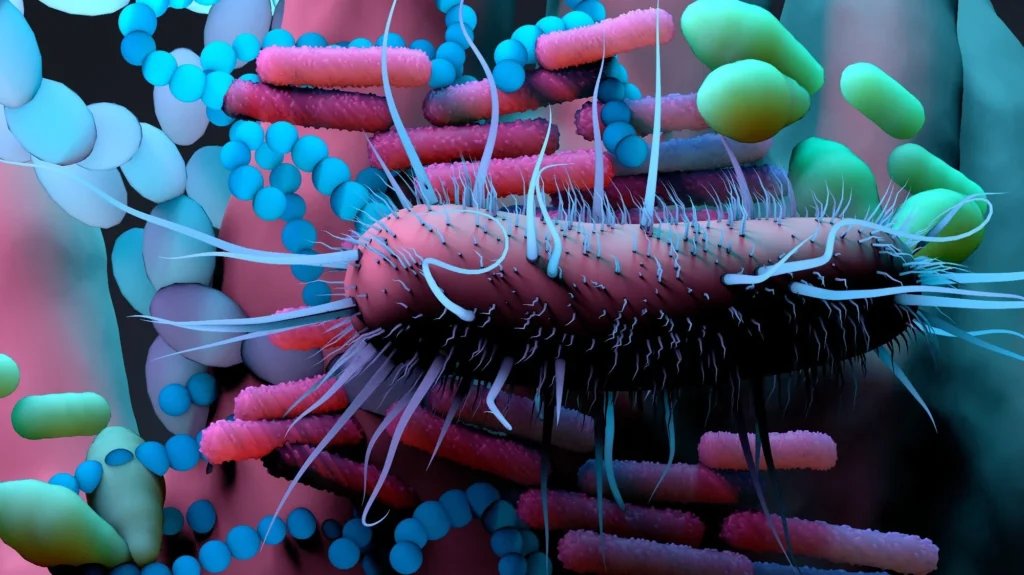In a groundbreaking study conducted by researchers at the Okinawa Institute of Science and Technology (OIST), the intricate relationship between gut bacteria and the effectiveness of the COVID-19 mRNA vaccine has come to light. Published in Communications Biology, the research delves into the impact of gut microbiome activity, particularly the breakdown of a sugar called fucose, on the immune response triggered by the Pfizer mRNA vaccine. The findings shed light on the variability in vaccine effectiveness among individuals and emphasize the potential implications for other mRNA vaccines under development.
Gut Microbiome’s Role in Immune Health:
The human gut is home to trillions of bacteria collectively known as the gut microbiome, playing a pivotal role in immune health. Professor Hiroki Ishikawa, leading the OIST Immune Signal Unit, emphasizes the significance of understanding why individuals respond differently to the same vaccine. The research aims to uncover the factors contributing to this variation, with the ultimate goal of predicting and enhancing individual responses to vaccines.
Study Design and Participants:
The study involved 96 healthy participants living in Okinawa, and it spanned from before the first dose of the COVID-19 Pfizer mRNA vaccine to a month after the second dose. Stool samples and multiple blood samples were collected for a comprehensive analysis, examining genes from immune cells and bacteria in the gut. While the focus was on the Pfizer vaccine, the researchers believe the results may extend to other mRNA vaccines targeting different infectious diseases and even cancer.
Key Findings:
Contrary to expectations, the study did not find a significant correlation between antibody levels and gut microbiome activity. However, a notable connection emerged between the T-cell response and the gut microbiome’s high activity of fucose digestion. T-cells, crucial components of the immune system, are activated in response to specific bacteria or viruses and play a vital role in fighting infections.
The researchers identified that individuals with a diminished T-cell response exhibited elevated expression of two genes, FOS and ATF3, before vaccination. These genes, associated with the AP-1 transcription factor group, have known roles in controlling T-cell survival and activity. The study proposes that fucose digestion in the gut leads to increased expression of FOS and ATF3 in blood immune cells, ultimately weakening the response to the COVID-19 vaccine.
Implications for Future Vaccines:
While the study primarily focused on the COVID-19 Pfizer mRNA vaccine, the researchers suggest that their findings could be relevant for other mRNA vaccines in development, targeting various infectious diseases and even cancer. Understanding the intricate interplay between gut microbiome activity and vaccine response opens avenues for predicting individual responses and developing strategies to enhance overall vaccine efficacy.
Unraveling the Mechanism:
While the exact mechanism linking fucose digestion, gene expression, and T-cell response is yet to be fully elucidated, the study provides a compelling foundation for further research. Masato Hirota, the first author and a PhD student in the Immune Signal Unit, underscores the critical impact of gut bacteria on the immune system’s overall health. The proposed pathway involving FOS and ATF3 suggests a complex interplay between the gut microbiome and blood immune cells.
Conclusion:
The OIST study offers a significant breakthrough in understanding the nuanced relationship between the gut microbiome and the immune response to mRNA vaccines. As researchers continue to unravel the intricate mechanisms at play, the potential to predict and enhance individual responses to vaccines emerges as a promising avenue. The study’s implications extend beyond the realm of COVID-19, laying the groundwork for advancements in vaccine development against a spectrum of infectious diseases and even cancer.





